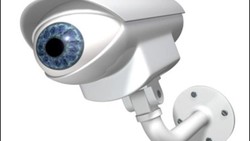Musicians have long criticized the streaming service’s paltry payouts, but a new wave of boycotts is emerging
Provide an alternative with a better user experience, or users won’t switch.
Quobuz, Tidal, et al need to rapidly improve their feature set to match Spotify (primarily group / jam sessions, recommendation engine, and device / app support) or this proposal has less hope than convincing everyone to go back to pirating.
I tried Qobuz and the very first artist I searched for, it didn’t have. Liking quite a lot of obscure artists is a curse.
That’s the main reason I dropped Spotify and streaming in general. It just really bummed me out when making playlists and not finding my favorite songs to fill it.
convincing everyone to go back to pirating
Nothing wrong here. Btw many artists already claim that streaming is like piracy.
steve albini told fans to pirate his music because he didnt want sony getting even a penny 😂
recommendation engine
I’ve been a Spotify subscriber since 2009 (you cannot shame me more than I’ve shamed myself), and their recommendation engine (algorithm, as I prefer to call it) is fucked. First of all, it will recommend music where they pay the artists the least, so they can take more money themselves. And it’s the same fucking songs over and over again, basically no matter the playlist “made for you”. It’s literally the same 200 songs.
I agree, but have you tried the recommendation engines on the other platforms?
I tried Tidal, but not heavily. Right, what I do love about Qobuz is their weekly updated new albums. It’s easy to put on something new. And then there’s the “Newcomers” lists, which are new artists, curated weekly or monthly, not sure.
As for their recommendations: I’ve only used it for two weeks with listening to a lot more new artists and music, so it’s currently all over the place lol.
Edit: and I agree with Spotify having so many more features than the others, but I can live without them. My wife, on the other hand…
They changed their genre classification tags behind the scenes in 2023, around the time they fired the guy who ran “Every Noise at Once” and ruined almost all value the service had.
'around the time they fired the guy who ran “Every Noise at Once" ’
You know, that explains a lot. I think I’ve read that dude’s book — it was a good read.
Couldn’t care less about most “features” these services have, my issue is the fact that Spotify is the only one that has a decent catalogue of more obscure stuff I listen to.
I’ve used Tidal for years now. It’s 100% functional. I don’t see anything I need on Spotify.
Just make the change, everyone. Not to Tidal necessarily, but away from Spotify. They’ve had the worst audio quality for YEARS now. Change is scary, but hey, here’s a tool to help you migrate:
For you it is. For me, someone who regularly listened to group sessions while online gaming with friends, it is not.
How does tidal integrate with voice commands? Like home speakers, etc?
I support this movement by never having had a Spotify account.
Something about algorithm recommended music never appealed to me.
Always on the lookout for a streaming service that can actually distinguish between different subsets of metal.
Spotify and all the popular alternatives, I’ll seed a playlist with some symphonic metal, and within like 5 songs it sounds like a troop of howler monkeys having an orgy ontop of a pile of guitars and drums. Not quite my cup of tea. I want it to sound like band and orchestra nerds having an orgy ontop of a pile of guitars and drums… is that too much to ask?!
Opposite experience for me on Qobuz. Start it off on some Dillinger Escape Plan, it’ll be playing Judas Priest within about five songs. No no, I’m here for the screaming.
Assigning a genre to a band is fine for those that ‘stay in their lanes’, but for bands that are a bit borderline genre, experiment a bit or get more (or less) hardcore over time, one label maybe isn’t appropriate. I’d like to see something more like “Steam community tagging”, where us users can put appropriate tags against each song / album / artist, and then be able to search based on tags. Takes some work to set up, but once it’s going it should be relatively low effort for the platform, and lets the metalheads argue amongst themselves who belongs in exactly which genre.
Navidrome and piracy.
I started using Qobuz a couple weeks ago. Haven’t cancelled my Spotify subscription just yet but I think I will.
It has every band and song I’ve searched for so far. Missing some features from Spotify (like “Start a jam”), but overall I’m happy to not be supporting them anymore.
You guys heard of Subvert?
No but sell me
Well, it’s an artist co-op. Artists own part of the platform, so they can control how it works and what decisions are made.
Instead of being at the whims of some profit-brained tech CEO, the artists vote on what the platform does – it’s a democratic way to control the future of the internet, or, in this particular case, of music streaming, sales, and merch for artists on the internet.
I think it’s pretty cool, but it’s not a thing quite yet. They’re aiming to open this year, though. We’ll see.
The nice thing about this model (band camp, subvert etc) is that they don’t have network effects:
Just because artists I like are on bandcamp there is no extra ‘cost’ for me to get that one artist from subvert. That means that artists are not locked into the biggest platform.
I’ve been a Spotify subscriber since 2012 and I just recently cancelled. Dusted off my old MP3 library and set it up with Navidrome. It’s not perfect but it’s good enough for who it’s for (Me). I will say that I never really much used the radio or recommendations from Spotify so I’m probably a unique case in that regard.
I didn’t either. I suspect the common wisdom of music discovery through Spotify radio or playlists is less common than general wisdom would suggest. I have no doubt it’s still used by the majority, why would they focus on the feature as much as they do otherwise, I just suspect it isn’t as monolithic as what I’ve seen the Lemmy community assume.
No problemo. I never left Pandora ad supported
Yeah, i just pay my dollar to LivexLive to stop getting ads and then have symfonium pointed at a google drive. The hard part has been refilling up my own music as downloads has been harder and i dont have a CD ripper anymore













